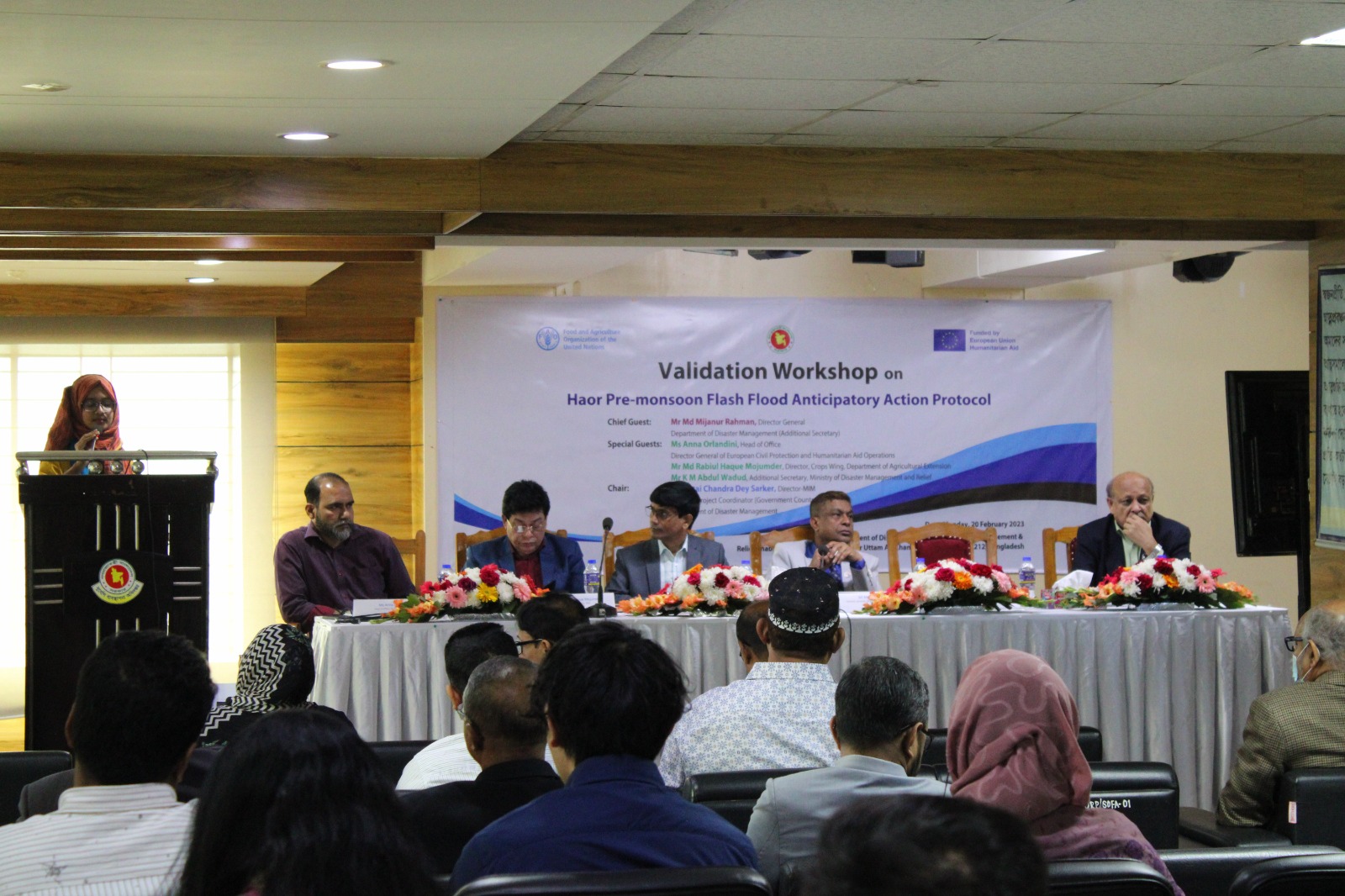
DHAKA, Feb 21, 2023 (BSS) - Experts at a workshop have suggested that Bangladesh should be better prepared to minimise the consequences of flash floods in the country's haor region.
"Evidence suggests that preparing for crises can reduce food insecurity and make vulnerable communities more resilient," they said.
The Food and Agriculture Organization of the United Nations (FAO) arranged the validation workshop at the Department of Disaster Management here yesterday aiming to coordinate flood response implementation and validate the level of flooding that would trigger an emergency response, a FAO press release said today.
"If we know when a flood is going to hit then we can take precautions to protect agricultural assets and livelihoods, especially in the most vulnerable communities. Being prepared to act in response to disasters such as floods helps to save lives and livelihoods," said Nur Khondaker, Assistant FAO Representative (Programme).
Mijanur Rahman, Director-General, Department of Disaster Management, joined the workshop as the chief guest with Netai Chandra Dey Sarker, National Project Coordinator (Government Counterpart), Department of Disaster Management, in the chair.
Md Rabiul Islam Mazumdar, Director, Crops Division, Department of Agricultural Extension and Mukit Billah, Programme Officer, ECHO, attended the meeting as special guests.
Smallholder farmers in areas vulnerable to monsoon floods will be better prepared this year, thanks to a scaling-up of anticipatory action.
Last year, record-breaking floods wreaked havoc, affecting an estimated 7.2 million people in the country's north-eastern region.
Torrential rain and upstream water completely submerged around 94 percent of the town of Sunamganj and 84 percent of Sylhet districts in northeastern Bangladesh.
A shift in strategy from responding to recurring shocks to anticipating their effects has the potential to break the cycle of increasing reliance on humanitarian aid by protecting the most vulnerable and their livelihoods ahead of time. It can help manage crises in a more efficient and dignified way.
The FAO in consultation with the Regional Integrated Multi-Hazard Early Warning System (RIMES), the Flood Forecasting and Warning Centre (FFWC), and other stakeholders, developed a pre-monsoon anticipatory action response plan for the Haor region under the 'Increasing Capacities and Scale for Anticipatory Action, including Through Social Protection Systems Project' which is funded by the European Civil Protection and Humanitarian Aid Operations (ECHO).
Bangladesh is one of five countries in Asia (along the Lao People's Democratic Republic, Pakistan, the Philippines, and Viet Nam) that is piloting a programmatic partnership between the FAO and ECHO to scale-up anticipatory approaches to crises.